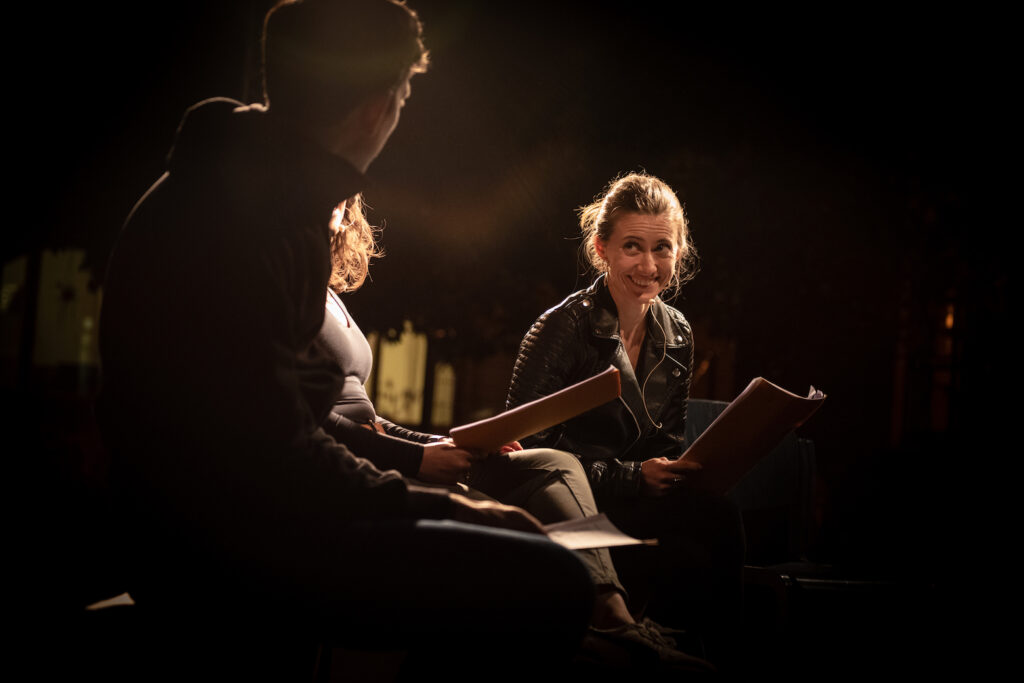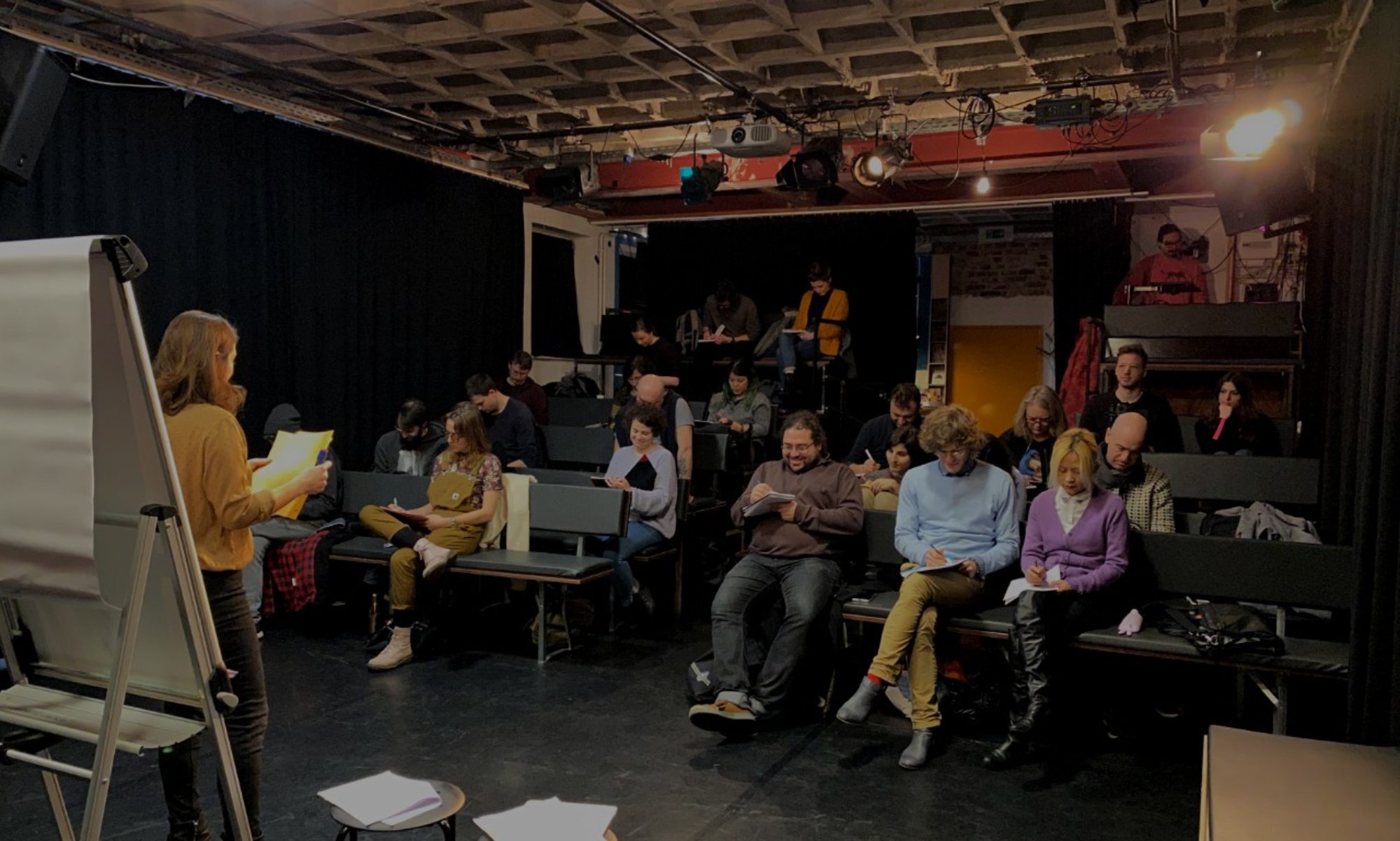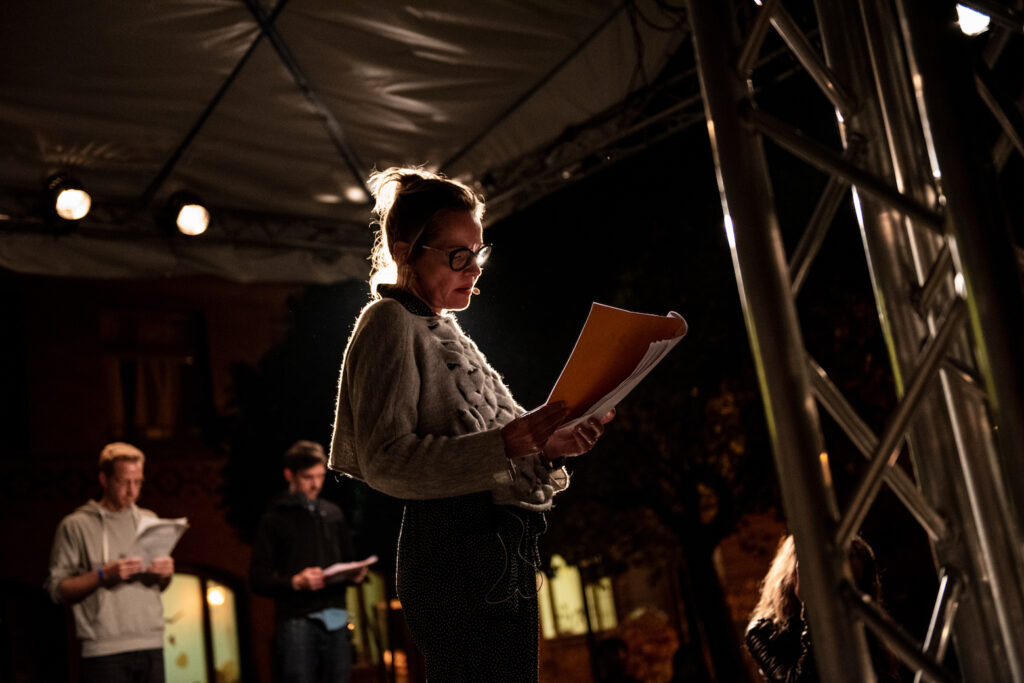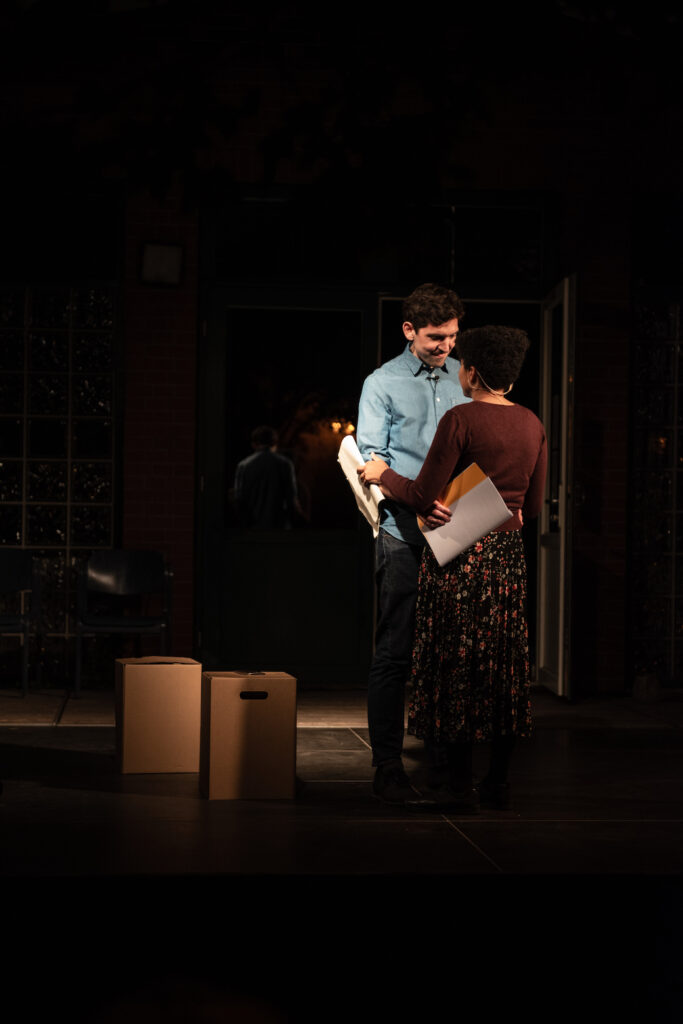We presented three of the plays developed in our workshops at the Kreuzberger HoffestSpiele last September in Theatre Expedition Metropolis. We read these plays months before the festival and talked with the writers for feedback. The playwright needs to hear the text they’ve written and see how people react to it so they can make the necessary changes.
Semi-stage these plays at the HoffFestSpiele was a completely different experience than doing it between us on a Zoom screen. We wanted to know how the playwrights felt and learn more about their creative process.
Storm Jackson-Payne
How was it for you to hear your words spoken in front of an audience?
I found it surreal but in a really good way. It was the first time I had seen something that I had written be performed without also being involved in the production, so I didn’t know what to expect. The actors were great and I’m so grateful to them for bringing my script to life. I really enjoyed the feeling of only being one part of something, and the actors and director completing it in the way they felt was right.

How did you start writing?
I started writing plays when I was a kid, mostly so me and my friends could act in them and have a laugh. I later ended up studying script writing at university.
How about Shout Fire? Why Shout Fire?
With Shout Fire, I wanted to show how normalised it is for women to fear men. The characters talk about their experiences of feeling threatened and the tactics that they employ to feel more safe, whilst at the same time laughing at the ridiculousness of what they are saying. Faking phone calls and holding your keys between your fingers to use as a defence weapon are not things that anybody should feel they have to do on a daily basis, but somehow it’s necessary, and these characters find the humour in it to cope. I know that not all women will identify with the character’s experiences, but it was important for me to write this perspective.
What is your writing process like?
I can’t really say I have a writing process, but for Shout Fire I started without much of a plan and wrote it very quickly in two sittings. Because it was all one scene and quite a fast-paced script, I felt I had to just keep going so as not to lose the momentum of the dialogue. Since finishing Shout Fire, I have been trying to write a little every day, just to stay in the habit of writing and to put any ideas that have been forming down on the page before I forget them or grow bored of them.
How did being part of WriteNow Berlin affected your writing?
WriteNow Berlin has honestly changed everything for me in terms of writing. After I graduated from university, I didn’t write a thing for almost six years. Within months of attending these workshops, I have written a play and am keen to keep going. The workshops are so practical and just get you writing instantly. Also, hearing other people’s work is so inspiring and hearing other people’s feedback is invaluable.
Are you working on a new play at the moment?
Yes, I am working on another short play at the moment. It also focuses on themes of violence against women.
Any tips for people starting to write?
Don’t wait around for the perfect idea. I have to tell myself this all the time. If you have just a glimmer of an idea or a character or just one line that’s in your head, just start writing and see what happens.



